Monday (November 20)
Veronika Oravcová, CEEC Director, Slovak Foreign Policy Association

Veronika Oravcová
CEEC Director, Slovak Foreign Policy Association
Veronika Oravcová is a Research Fellow at the Slovak Foreign Policy Association and a Research Assistant at the Department of Political Science at Comenius University in Bratislava. Her research interests are centred on energy transition and energy security in Central and Eastern Europe, she is a co-editor of From Economic to Energy Transition. Three Decades of Transitions in Central and Eastern Europe (Palgrave: London, 2021), several chapters on energy transition, and several papers on Slovak energy policy.
Keynote
Kamil Šaško, State Secretary of the Ministry of Economy of SR
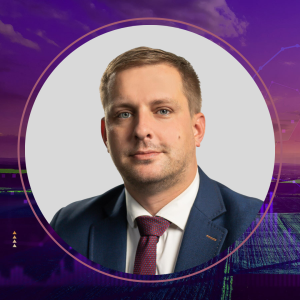
Kamil Šaško
State Secretary of the Ministry of Economy of SR
Kamil Šaško was an Expert in Regulation and Oversight at the National Bank of Slovakia from 2020 to 2023. From 2017 to 2020, he served as a Financial Advisor at the EU Council, representing the Slovak Republic in Brussels. Between 2015 and 2020, Mr. Šaško held the position of Financial Attaché at the Permanent Representation of the Slovak Republic to the EU. In 2014 and 2015, he was a General State Counsel in the Financial Market Section of the Ministry of Finance of the Slovak Republic in Bratislava. He worked as a Private Banker at Tatra Banka in Bratislava and as a Portfolio Manager at Otto Money in London in 2013. He chaired Working Groups in the EU Council for Financial Services in 2016 and was a member of the Center for Financial Innovations at the Ministry of Finance of the Slovak Republic from 2018 to 2020.
Mr. Šaško pursued a Master of Science (MSc.) in Finance with a specialization in Investment Banking at the London School of Business and Finance – LSBF. He completed a Bachelor of Science in Applied Science and Business Management (BSBA.), focusing on Mathematics at the University of Sussex.
CHAIR
Zuzanna Nowak, Analysis Director - The Opportunity Institute for Foreign Affairs
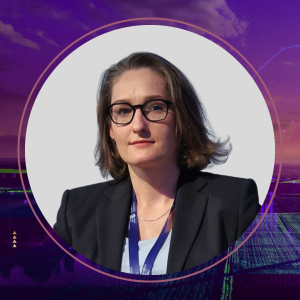
Zuzanna Nowak
Analysis Director - The Opportunity Institute for Foreign Affairs
Zuzanna Nowak is an analyst specializing in energy security and energy transition issues. She works as Analysis Director at The Opportunity Institute for Foreign Affairs and deputy editor-in-chief of Układ Sił magazine. She also cooperates with the Ignacy Lukasiewicz Institute for Energy Policy. Previously, she worked as energy and climate analyst at the Polish Institute of International Affairs. She also gained experience working for various stakeholders in the energy industry, including: PGNiG, the National Center for Nuclear Research, and the Polish Committee of the World Energy Council. She graduated from Sciences Po Paris and the College of Europe in Bruges.
Keynote
Kurt Vandenberghe, Director-General, Directorate-General Climate Action (DG CLIMA)

Kurt Vandenberghe
Director-General, Directorate-General Climate Action (DG CLIMA)
Kurt was appointed Director General of DG CLIMA on 16 January 2023. Until then, he was the Green Deal and Health advisor to President Ursula von der Leyen since 1 December 2019. He had joined the cabinet of the President coming from DG Research and Innovation where he was Director for Policy & Programming since 1 February 2016 and Acting Director for Research & Innovation Outreach since 1 June 2019. Before that, he was Director for 'Climate action and resource efficiency' at DG Research and Innovation since July 2013. He served in the Cabinet of Research Commissioner Philippe Busquin (1999-2004) and as Head of the Cabinet of Janez Potočnik, who was Commissioner for Research and Innovation (2004-2009) and subsequently for Environment (from 2010).
Kurt joined the European Commission in 1996 as co-ordinator of the Commission’s Intermodal Transport Task Force and of the Transport Research Programme. Before entering the Commission, Kurt worked for 4 years as a manager at Ernst & Young Association Management, where he set up, managed and represented international trade associations.
After reading French and Italian literature at the Katholieke Universiteit Leuven (KUL) and obtaining a degree in Public and International Affairs at the University Catholique de Louvain-la-Neuve (UCL), Kurt gained a Master of Arts degree in International Relations at the Johns Hopkins University School of Advanced International Studies (S.A.I.S.) in Bologna, Italy and Washington D.C., US.
Speakers
Vladimír Bilčík, Member of the European Parliament
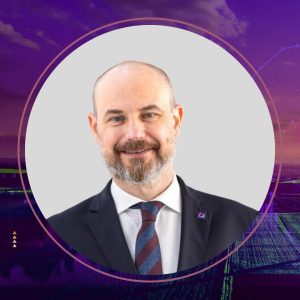
Vladimír Bilčík
Member of the European Parliament
Vladimír Bilčík studied political science and economics at Swarthmore College. He obtained an M.Phil. degree in European Politics from the University of Oxford and a Ph.D. in political science from Comenius University in Bratislava. From 1999 to 2019, he worked as a research fellow and later as the head of the EU program at the Slovak Foreign Policy Association (SFPA). From 2005 to 2019, he also worked as an educator at the Department of Political Science at the Faculty of Philosophy of Comenius University.
In May 2019, he became a Member of the European Parliament. In the European Parliament, Vladimír Bilčík is a member of the Committee on Civil Liberties, Justice and Home Affairs (LIBE) and a substitute member of the Committee on Foreign Affairs (AFET) and the Committee on Constitutional Affairs (AFCO). He is a member of the center-right group of the European People's Party (EPP) and has also served as a coordinator/spokesperson for the EPP in the Special Committee on Foreign Interference in all Democratic Processes in the European Union, including Disinformation (ING2). In addition, he was a member of the investigative committee to investigate the use of the Pegasus program and equivalent surveillance spyware (PEGA). He is also the chairman of the parliamentary committee for the stabilization and association of the EU with Montenegro and serves as the European Parliament's rapporteur for Serbia
Adam Cwetsch, Head of European Green Deal Unit, Energy Community

Adam Cwetsch
Head of European Green Deal Unit, Energy Community
Adam Cwetsch is the Head of European Green Deal Unit in the Energy Community Secretariat where he leads the work related to the implementation of the Energy Community Decarbonisation agenda. He has over 12 years of experience in policymaking, law, economics, diplomatic and international affairs, ranging from national implementation of the EU energy and climate acquis to the reform process in the EU's neighbourhood and EU policy making. Adam has a legal background, he graduated from Durham University and the University of Warsaw. Before joining the Energy Community, Adam was the Head of the Climate Policy Department at the Chancellery of the Prime Minister of Poland. Prior to this assignment, Adam spent six years at the European Commission as Policy Officer in DG ENER, and previously was an official at the Polish Ministry of Foreign Affairs.
Pawel Czyzak, Senior Energy and Climte Analyst, Ember

Pawel Czyzak
Senior Energy and Climte Analyst, Ember
Pawel Czyzak is a senior analyst with the global energy think-tank Ember. He is an author of several dozen publications on the energy transition in Europe, as well as widely cited tools such as PL/UK/EU power system models. His modelling studies, opinions and comments appear regularly in the world's largest media, including the New York Times, Washington Post, Reuters, Politico, Financial Times. For over 10 years he has been supporting NGOs, governments, international organizations and enterprises in solving their analytical challenges, with clients ranging from some of Europe's largest utilities to the World Bank. Prior to Ember he was a board member at Warsaw-based think-tank Instrat. Pawel holds a master's degree from the Warsaw University of Technology and a PhD from the Warsaw School of Economics.
In the long-running CEEC tradition, the International Energy Agency (IEA) will present key findings from its annual WEO Report. The World Energy Outlook (WEO) provides critical, objective analysis and insights on global energy demand and supply trends and their implications for energy security, environmental protection and economic development. The WEO uses a scenario-based modelling approach to highlight the key choices, consequences and contingencies that lie ahead, illustrating how energy system pathways can be affected by changes to key assumptions and variables, chief among them the energy policies adopted by governments around the world.
CHAIR
Ingrid Brocková, Slovak Ambassador to the Czech Republic
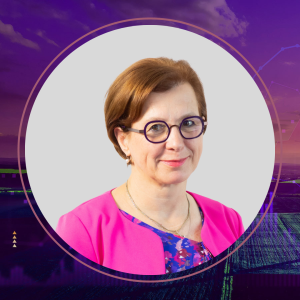
Ingrid Brocková
Slovak Ambassador to the Czech Republic
Ingrid Brocková is currently (since September 2023) the Ambassador of Slovakia to the Czech Republic. Prior to that she was the State Secretary of the Ministry of Foreign and European Affairs (MFEA SR) of the Slovak Republic (2020-2023), the Ambassador and Permanent Representative of the Slovak Republic to the OECD (2011-2015, 2018-2020), the Director General for Economic Cooperation at the MFEA SR (2015 – 2018) and the Country Manager of the World Bank in Slovakia (2001-2008). She joined the MFEA SR in 1993, her expertise is mainly in economic diplomacy and development assistance agenda.
Mrs. Brocková holds a Doctorate in Economics (Ph.D.) from the Slovak Technical University, Bratislava (1991). In 1999 she obtained a Masters in International Public Policy (M.I.P.P.) from the Paul H.Nitze School of Advanced International Studies at the Johns Hopkins University in Washington, D.C., U.S.A.
Speakers
Peter Zeniewski, WEO Energy Analyst, International Energy Agency
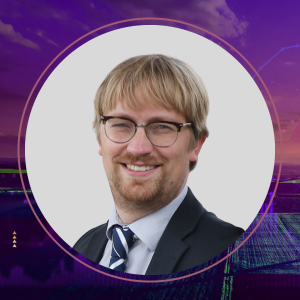
Peter Zeniewski
WEO Energy Analyst, International Energy Agency
Peter Zeniewski is Lead Gas Analyst for the World Energy Outlook at the Paris-based International Energy Agency (IEA). He was formerly the Product Manager for Wood Mackenzie's European Energy Service and was a Policy Officer at the European Commission JRC Institute for Energy. He is a Chancellor's Fellow of Edinburgh University and holds a PhD from the University of Oxford.
Commentary
František Ružička, Ambassador, Permanent Representative of the Slovak Republic to the OECD

František Ružička
Ambassador, Permanent Representative of the Slovak Republic to the OECD
Ambassador František Ružička took up his duties as the Permanent Representative of the Slovak Republic to the OECD in November 2020. Prior served as the State Secretary of the Ministry of Foreign and European Affairs from 2018 onwards.
František Ružička was appointed Director of the Office of H.E. Miroslav Lajčák, during the Presidency of the 72nd session of the UN General Assembly in New York, from 2017 to 2018.
He was Ambassador to the United Nations in New York from 2012 to 2017, Ambassador to the Republic of Poland from 2005 to 2010.
František Ružička served in numerous leadership roles at the Ministry of Foreign and European Affairs of the Slovak Republic and abroad – Washington, Prague.
H. E. František Ružička graduated from the Moscow State Institute of International Relations and Charles University in Prague with PhD in Philosophy.
He has published extensively on Slovak diplomacy and on European politics, and holds several distinctions including Commander’s Cross of the Order of Merit of the Republic of Poland. He also translated several novels from English into Slovak.
Oldřich Sklenář, Research Fellow, AMO

Oldřich Sklenář
Research Fellow, AMO
Oldřich Sklenář is an analyst at AMO, where he is a member of the climate team. He specializes in energy issues and greenhouse gas production. He graduated in Energy and Process Equipment from the Brno University of Technology and in Environmental Studies from Masaryk University. Additionally, he completed a study internship at Vrije Universiteit Brussel.
He began his professional career as a designer in the energy sector. He then worked for several organizations, including non-governmental ones, focusing on the development of renewable energy sources and energy management. The largest part of his career has been spent in a managerial role in the development and production of electrical machinery. In addition to AMO, he also works as a consultant as part of the Climate Facts project.
CHAIR
Aaron Fishbone, Director of Public Policy, Greenway
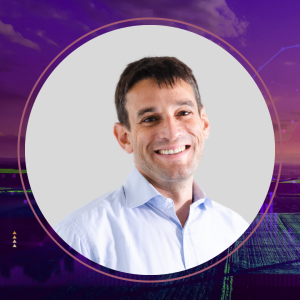
Aaron Fishbone
Director of Public Policy, Greenway
Aaron Fishbone is the Director of Public Policy for GreenWay, the largest pureplay electric vehicle (EV) charging company in Central & Eastern Europe (CEE). In this capacity he helps to develop forward looking policies and regulations to advance zero emissions road transport. He is on the Management Committee and 2x elected chair of the Communications Committee of ChargeUp Europe, the Brussels-based industry association for the EV charging industry in Europe, and is an active member of the Platform for Electromobility and Slovak Electric Vehicle Association.
Prior to joining GreenWay, he was a senior policy analyst for the Mayor of Seattle, Washington, USA from 2011-2014 and an advisor to the Office of International Affairs for the City of Dusseldorf, Germany in 2015.
Speakers
Serhii Morhunov, Mayor of Vinnytsia
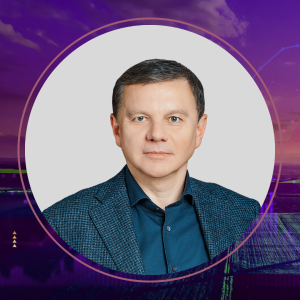
Serhii Morhunov
Mayor of Vinnytsia
Serhii Morhunov serves as the Mayor of Vinnytsia since November 27, 2015. Born on July 9, 1968, in Vinnytsia, he completed his education at Chernivtsi State University. In 2010, he obtained a Master's degree in "Management at Regional and Local Levels" from the National Academy of Public Administration under the President of Ukraine.
Before entering politics, Serhii Morhunov undertook military service in the ranks of the Armed Forces of the USSR from 1987 to 1989. Subsequently, he worked in management positions within commercial structures from 1998 to 2006. He also served as a teacher of History and Social Sciences at Vinnytsia Technical College of the Meat and Dairy Industry from 1992 to 1997.
In 2002, Morhunov became a deputy of the Vinnytsia City Council during the 4th convocation. He was elected twice as Chairman of the Vinnytsia City Council, serving from 2006 to 2010. On November 27, 2015, he assumed the role of Vinnytsia's Mayor.
In recognition of his contributions to the state, Morhunov has received state awards, including the Order "For Merit," III degree, and the Order "For Merit," II degree. His career is marked by a commitment to public service and a background in education and management.
Matúš Vallo, Mayor of Bratislava

Matúš Vallo
Mayor of Bratislava
Matúš Vallo has been the mayor of the Slovak capital Bratislava since December 2018. Before serving as mayor, he was a co-founder of the architectural studio Vallo Sadovsky Architects.
Mayor Vallo was born in Bratislava and received his secondary education in Rome. He is a graduate of the Faculty of Architecture of the Slovak Technical University in Bratislava. As an architect, he gained foreign work experience, including in London. He holds a Fulbright scholarship at Columbia University in New York.
One of the main goals of Matúš Vall and his team is to make Bratislava a strong and self-confident city with a high level of transparency as an important tool in the fight against corruption. Mayor Vallo places great emphasis, among other things, on high-quality public space, drawing on his own professional experience in this topic. Important topics for the mayor and his team are the fight against the climate crisis, the strengthening of accessible public transport, the social sector and assistance to disadvantaged groups.
In 2021, he received the World Mayor Future Award from The City Mayors Foundation for his efforts to transform Bratislava into a greener city with high-quality public space.
Mayor Vallo is a co-founder of the Pact of Free Cities, which he founded with the mayors of Warsaw, Prague and Budapest in 2019. In the same year, he received a scholarship from the Bloomberg Philanthropies educational program for mayors from cities around the world called the Bloomberg Harvard City Leadership Initiative.
Daniel Morys, Chairman of the Board, Ostrava public transport

Daniel Morys
Chairman of the Board, Ostrava public transport
Daniel Morys ihe has been the CEO and Chairman of the Board of Directors of Dopravní podnik Ostrava a.s. (DPO), a transport company, since 2016.
He graduated in marketing and management from the Silesian University in Opava (Faculty of Business and Management in Karviná) and completed an MBA program at Liverpool John Moores University. Before joining DPO, he held the position of CEO and director of ČEZ Energetické služby.
In the Manager of the Year competition in 2020, he ranked in the top 10 and also won in the Services category. He is a member of the board of the Association of Transport Companies in the Czech Republic, which formulates and advocates for the common interests of urban transport companies in dealings with state authorities. A significant achievement was the legislative change that exempted traction energy from fees related to renewable energy sources (OZE).
During his tenure at DPO, he introduced a number of innovative projects, including a fare payment system with daily optimization using payment cards (similar to London), projects such as "BezpapirOVA" (ending the sale of paper tickets), the introduction of transport assistant services, installation of Wi-Fi for passengers in vehicles, the Turquoise Collection (proceeds going to non-profit organizations), installation of anti-collision systems in trams, a tram driver simulator, the "MyDPO" mobile application, "Diesel-Free" (the option not to use diesel buses in regular daily operations), procurement of double-decker buses with CNG propulsion, fleet renewal with the use of European subsidies, and the acquisition of electric buses, including ultra-fast charging stations.
CHAIR
Andrej Nosko, Researcher and Visiting lecturer, Faculty of Political Sciences and International Relations of Matej Bel University in Banská Bystrica

Andrej Nosko
Researcher and Visiting lecturer, Faculty of Political Sciences and International Relations of Matej Bel University in Banská Bystrica
Andrej Nosko is a Central European energy expert, researcher, and visiting lecturer at Faculty of Political Sciences and International Relations of Matej Bel University in Banská Bystrica. Mr. Nosko's academic interests include the political economy of security, energy and issues of political and energy transition. He advised governments, businesses and civil society organizations, lectured, and authored papers on energy policies of Central European countries.
Speakers
Tahir Kapetanovic, Vice-Chair of the Board of ENTSO-E, Head of System Operation and Vice President International, Austrian Power Grid AG
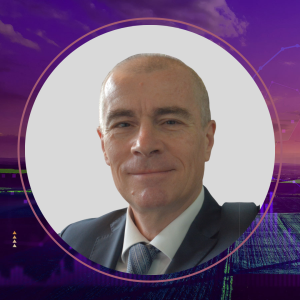
Tahir Kapetanovic
Vice-Chair of the Board of ENTSO-E, Head of System Operation and Vice President International, Austrian Power Grid AG
Tahir Kapetanovic is head of system operation and vice president international at Austrian Power Grid, the TSO of Austria. In ENTSO-E he is vice-chair of the Board, where earlier he chaired System Operations Committee, managed development of operational network codes and regional TSOs’ coordination. In TSC and System Operation Region Central he is member of management boards and previously chaired TSC Operational Board.
Tahir has over 35 years of experience in electricity transmission, energy markets regulation, banking sector, electrical equipment industries and academic research. He is certified operator of Austrian transmission system and licensed trader on EPEX Spot and EEX power exchanges.
He holds PhD, MSc and Dipl.-Ing. in electrical engineering and power systems from TU Wien and University of Zagreb and Executive MBA from University of Minnesota and Vienna University of Economics and Business.
László Szabó, Director, Regional Centre for Energy Policy Research

László Szabó
Director, Regional Centre for Energy Policy Research
László Szabó is a director of REKK, Hungary. He is an energy economist, specialising in renewable energy, climate change policy and energy infrastructure development, holding PhD degree in Economics. Previously he held several positions in the Hungarian public administration as well as in the Joint Research Centre of the European Commission (IPTS), where his research focused on long term energy modelling of energy technology developments. Since over eight years he coordinates regional and European research projects of REKK. Laszlo has profound experience in managing larger sized networks of researchers and consultants. He teaches at the energy economic course at the Corvinus University of Budapest and publishes peer reviewed articles in the field of climate change, renewable policy and energy infrastructure assessment.
Simon Tot, Assistant Director of the Strategic Innovation Department, ELES
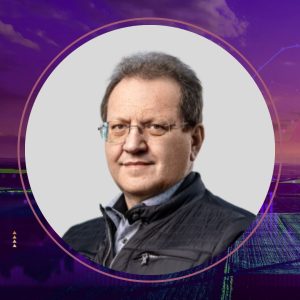
Simon Tot
Assistant Director of the Strategic Innovation Department, ELES
Simon Tot is a Assistant Director of the Strategic Innovation Department at ELES. He has more than 37 years of experience in the energy sector. He previously worked in generations of electricity in the thermal and hydropower plants field. His main activities were the optimization of hydro and thermal generation and the provision of ancillary services.
He has been employed at ELES for the last six years. Its main tasks are the development of smart grids with an emphasis on the controllability of the grid with increasing flexibility of active and reactive power, increasing power flows, and flow control in the Slovenian transmission network to prepare it for the new challenges concerning the inclusion of increased amounts of dispersed renewable energy sources and new loads, such as batteries, heating pumps, e-mobility, etc.
Local and regional governments are in a unique position to deliver on the net-zero emissions agenda and play vital roles in energy savings, renewable energy, climate change mitigation, and adaptation. The COVID-19 pandemic has demonstrated that regions and municipalities are essential partners in delivering effective solutions. Regions and cities can serve as valuable allies in national initiatives aimed at reducing this dependence on Russian fossil fuels, all while simultaneously addressing the climate policies. By promoting energy efficiency, diversifying energy sources, and accelerating the adoption of renewable energy, regions can significantly contribute to this dual goal. Investing in renewable energy sources is a strategic move for regions, allowing them to diminish their reliance on centralized, fossil fuel-based power generation. Additionally, regional renewable energy projects can give a significant boost to local economies.
The objective of this roundtable is to provide a platform for insightful discussions on regional approaches to climate and energy policies. This forum seeks to explore best practices and put forward policy recommendations that can bolster the effectiveness of energy and climate policies in the region. The roundtable also aims to delve into the challenges and opportunities tied to energy transition and the pursuit of climate neutrality at the regional and municipal levels. By focusing on these aspects, we can create a more comprehensive and actionable roadmap for sustainable progress. Furthermore, the roundtable will cast a spotlight on the various financial tools provided by the European Union that foster and strengthen cooperation among regions and municipalities. These tools are indispensable in realizing the shared goals of sustainable energy and climate policies across the region.
CHAIR
Anton Marcinčin, Expert, Association of Towns and Communities of Slovakia
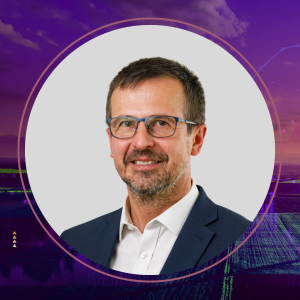
Anton Marcinčin
Expert, Association of Towns and Communities of Slovakia
Anton Marcinčin is an economist and co-founder of the initiative Regional development now! He worked as a government plenipotentiary for underdeveloped regions, an advisor to the Minister of Finance, a member of parliament and an economist at the World Bank in Bratislava. His areas of expertise included regional development, integrated planning, public financial management, living standards, labor market, primary and secondary education and marginalized communities.
He published dozens of scientific articles, lectured at several universities and participated in many international research activities. Since 2007, he has regularly published columns in Hospodárske noviny and since 2015 also in Pravda.
Marcinčin graduated from the Czech Technical University in Prague and CERGE-EI Prague and defended his Ph.D. in economics at Charles University in Prague. He has received scholarships and fellowships at the Tinbergen Institute Amsterdam and LSE London.
CHAIR
Richard Kvasňovský, Executive Director, Slovak Gas and Oil Association

Richard Kvasňovský
Executive Director, Slovak Gas and Oil Association
Richard Kvasňovský has spent the majority of his professional career in public service media. From 1998 to 2007, he worked at Slovak Radio, where he rotated through the international affairs department and the domestic editorial team. There, he served as an editor and host for news and discussion programs. Since 2009, he has been with the TASR news agency, where he served as the head of the domestic editorial team and a member of the TASR Board of Directors.
He has received several journalistic awards for his work. Since June 2019, he has been the executive director of the Slovak Gas and Oil Association.
Speakers
Lenka Kovačovská, Independent Energy Analyst

Lenka Kovačovská
Independent Energy Analyst
Lenka Kovačovská graduated from the Prague University of Economics and Business, the Faculty of International Relations with a master thesis focusing on energy security. In 2003-2011 she worked as an analyst at the think-tank Association for International Affairs. In 2013, she obtained a Ph.D. degree with her dissertation on liberalization of the electricity and gas markets in the European Union at the Faculty of International Relations of the Prague University of Economics and Business.
In 2012-2014, she worked as the Director of the Institute of Energy Economics at the Faculty of Public Economics of the Prague University of Economics and Business. For 7 years now, she has been teaching a course Geopolitics of Energy in the 21st century at the Economic University in Prague.
In 2007, she joined the Czech transmission system operator ČEPS, a.s., where she worked in the Department of Strategy and participated in numerous acquisition and international projects.
Between 2014 and 2015, she worked at the Ministry of Industry and Trade of the Czech Republic as the Director of Strategy and International Cooperation in the Energy Sector. And later was appointed the Deputy Minister responsible for the Energy section (2015-2017). In her duties at the Ministry, she also represented the Czech Republic at the EU level (Strategic Group, Directors General, Energy councils), the International Energy Agency (Governing Board and Standing Group on Long-Term Cooperation), the International Energy Charter, Visegrad Groupt etc. For 3 years she was a Supervisory Board Member of the Czech transportation system operator NET4GAS and for 2 years a Member (and for a year a chairwoman) of the Supervisory Board of the Czech transmission system operator in electricity ČEPS, a.s.
From 2018 to May 2022, she was the Executive Director of the Czech Gas Association. She was active in the Strategic Committee of eurogas and Executive Board member of Marcogaz.
Since June 2022, she has worked as an independent energy consultant for multiple Czech and foreign companies.
In 2022 she has also co-founded International Public Affairs Academy CZ and she serves as its managing partner.
Miroslav Kulla, Chairman of the Board of Directors and Chief Executive Officer, SPP

Miroslav Kulla
Chairman of the Board of Directors and Chief Executive Officer, SPP
Miroslav Kulla is the chairman of the board and general director of the company Slovenský plynárenský priemysel, a.s. In the period from 2002 to 2005, he worked in various positions at Slovak Telecom. From 2005, he worked at VSE Holding, first as deputy financial director and development manager, later in the years 2006 to 2022 in various positions as chairman of the board, general director, member of the board and commercial director. In the period from 2008 to 2022, he was the manager of RWE Gas Slovensko and its successor innogy Slovensko, s.r.o. Between 2013 and 2016, he worked as an operations director and member of the board of directors of RWE Hrvatska/RWE Energija. He is a graduate of ESCP-EAP, Paris Business School and the Faculty of Management of the Comenius University in Bratislava.
Paweł Stańczak, Deputy CEO for Development and Transformation, LLC Gas TSO of Ukraine
Rastislav Ňukovič, Director General, eustream

Rastislav Ňukovič
Director General, eustream
Rastislav Ňukovič studied at the Faculty of Electrical Engineering and Informatics at STU Bratislava. From 2000 to 2002, he completed postgraduate studies specializing in the gas industry at the Faculty of Environmental Technology at the University of Chemistry and Technology in Prague. His career in the gas industry began in 1998 in the Slovtransgas division of SPP, where he served as an IT systems administrator and later became the head of the Data Collection and Technical Support Department. From 2005 to 2008, he worked as the Director of Centralized Maintenance, and over the following four years, he served as the Director of Strategic Projects. Since July 1, 2014, he has been the CEO of EUSTREAM. He is a long-standing member of the Executive Committee of the Technical Association of the European Gas Industry (Marcogaz). Since September 2022, he has been serving as the President of the Slovak Gas and Oil Association (SPNZ).
Borbála Takácsné Tóth, Senior Analyst, Regional Centre for Energy Policy Research
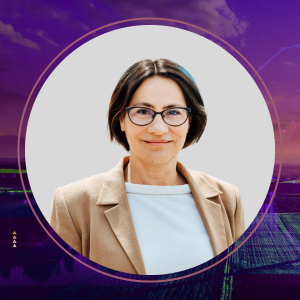
Borbála Takácsné Tóth
Senior Analyst, Regional Centre for Energy Policy Research
Borbála Takácsné Tóth has worked with the Regional Centre for Energy Policy Research (REKK) since its creation in 2004. With REKK she has been leading several international and national consultancy projects, with many using the European Gas Market Model as the primary analytic tool. Her main fields of expertise include: regional co-operations; security of supply issues; energy geopolitics; major infrastructure initiatives in the gas sector and incentives for investments; competition cases in the gas market; and the effect of gas release programs on competition in the gas market in Europe.
She recently (2023) defended her PhD thesis at the International Relations and Security Studies program at the Corvinus University of Budapest. In 2001 she received an M.A. in International Relations and European Studies at the Central European University in Budapest. Borbala was educated as an economist and received her degree from the Budapest University of Economic Sciences in 1998. She spent 5 years as a civil servant in government administration mostly in the field of energy regulation. Between 2001 and 2003 she was Head of the President's Secretariat responsible for international relations of the Hungarian Energy Office.
Over the years, the Visegrad Group countries have collectively learned several important lessons in their journey towards regional cooperation in natural gas sector. The lessons learned, solidarities, and energy transitions are all linked to shared goal of maintaining regional stability, energy security, and sustainable development in a rapidly changing European and global landscape. In the short run, V4 countries face several pressing issues. One of the most immediate concerns is preparing for the upcoming winter season, which is crucial, especially in terms of energy security and affordability of energy. There has also been seen a marked demand side response to the market challenges by the V4 countries. Looking further ahead, V4 countries are focused on shaping the future of energy within the EU. The vision for their energy sector in the mid to long term involves transitioning towards a more sustainable and diversified mix, while facing discussions on the role of gas in this transition and how it aligns with EU energy and climate policies. The V4 countries, like many other regions, are navigating the transition towards a greener industrial sector, with a focus on achieving net-zero emissions. This transition may impact the prospects of gas use in industry and trigger greater interest in low-emission gases. The countries will need to strike a balance between industrial development, energy efficiency, and carbon reduction to ensure a sustainable and competitive industrial sector and flourishing economies.
The aim of the roundtable will be to discuss the short- and long-term challenges that are ahead of natural gas sector of V4 countries and CEE and related chances and challenges for regional cooperation.
CHAIR
Agata Łoskot-Strachota, Senior Fellow, Centre for Eastern Studies (OSW)
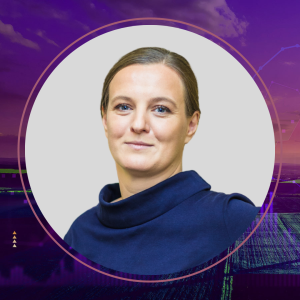
Agata Łoskot-Strachota
Senior Fellow, Centre for Eastern Studies (OSW)
Agata Łoskot-Strachota is a Visiting fellow at Bruegel. She is also a Senior fellow at the Centre for Eastern Studies (OSW) focusing on energy policy. For the past number of years, Agata has coordinated OSW’s research work on the European gas market and acted as a senior analyst for European Union energy policy. Her areas of expertise include the oil and gas sectors of Russia and countries of the Caspian region, Central, Eastern and Southern Europe and the Balkans; the energy dimension of international relations and energy policy in the EU and the post-Soviet area.
CHAIR
Zsolt Gál, Assistant Professor, Department of Political Science, Faculty of Arts, Comenius University in Bratislava
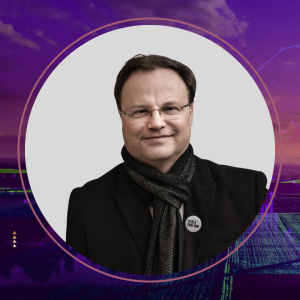
Zsolt Gál
Assistant Professor, Department of Political Science, Faculty of Arts, Comenius University in Bratislava
Zsolt Gál is an assistant professor at the Department of Political Science, Faculty of Arts at Comenius University in Bratislava. He holds an MA degree in Political Science from the department and a PhD degree in Economics from Corvinus University in Budapest, Hungary. His research interests include public finances, economic aspects of European integration, economic transformation in Central and Eastern Europe and international migration. He teaches several courses in these fields at Comenius University.
He is the author of the book The 2007–2009 financial crisis: what went wrong and what went different? (2011) and his work has been published in several edited volumes and academic journals. Recently, he contributed a chapter („From Economic Transformation to Energy Transition: The Legacy of Thirty Years of Post-Communist Development") to the volume From Economic to Energy Transition. Three Decades of Transitions in Central and Eastern Europe, edited by Matúš Mišík and Veronika Oravcová (2021).
Speakers
Pavol Kiraľvarga, Debt Capital Markets Specialist, Treasury department, Tatra banka
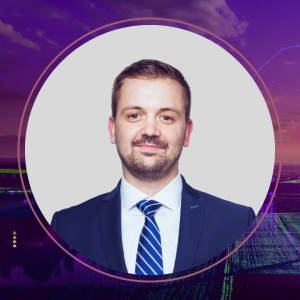
Pavol Kiraľvarga
Debt Capital Markets Specialist, Treasury department, Tatra banka
Pavol Kiralvarga is a Debt Capital Markets specialist at Tatra banka, responsible for wholesale funding of the bank. He led the issuance of Tatra banka's first green bond which was the first green bond issued in Slovakia as well as the first publicly syndicated green bond issued by a bank based in the CEE region. He actively participates in shaping the bank's ESG agenda, regularly leads and presents at the green bond committee meetings and is co-responsible for green bond allocation and impact reporting. Previously, he held a position within a corporate division of the bank as a loan syndication specialist. Pavol Kiralvarga holds an MSc in Financial Mathematics from Warwick Business School and is a CFA charterholder.
Štefan Kišš, Member of National Council of the SR
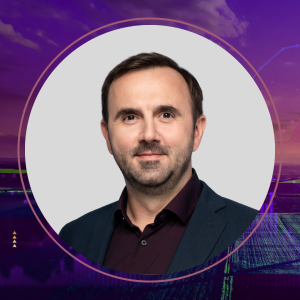
Štefan Kišš
Member of National Council of the SR
Štefan Kišš is an economist and a member of parliament for the Progressive Slovakia. Štefan spent most of his career working in managerial positions at the Ministry of Finance of the Slovak Republic. He was founding director of the Value for Money Division. He also worked at the Permanent Representation of the Slovak Republic to the EU as a financial attaché.
Štefan studied international economics at the Erasmus University in Rotterdam and international relations at the University of Economics in Bratislava.
Joana Smolik, Director of the Strategic Relations Department, Polish Development Bank

Joana Smolik
Director of the Strategic Relations Department, Polish Development Bank
Joana Smolik is a director of the Strategic Relations Department in the BGK, Polish Development Bank. She has worked at BGK since 2010. At first as a specialist and expert in the Structural Financial Department and then, since 2014, as a director of the structural financial team – energy, transport and municipial sector. In 2020 she has taken up a position as a director of the difficult transactions structuring team, which deals with early restructuring of enterprises. Since April 2021, she has been a director of the Strategic Relations Department, which main task is to support Poland's sustainable socio-economic development by providing financial solutions and comprehensive banking service for a key economic entities.
At BGK, she is also a director of the Strategic Security program. Its aim is to develop and implement financial solutions responding to the market needs in the area of energy, fuel sector and cybersecurity.
Apart from working at BGK, she gained her professional experience, among others, at TFI Energia SA, where she was a director of the Private Assets Management Office and also fund manager. She holds a master's degree in Finance and Banking from the Warsaw School of Economics and in Economics from the Warsaw University of Life Sciences.
Privately, she enjoys spending her free time actively and is also interested in interior design.
Ladislav Tolmáči, Executive Director, Corporate Finance Solutions, Erste Group Bank AG
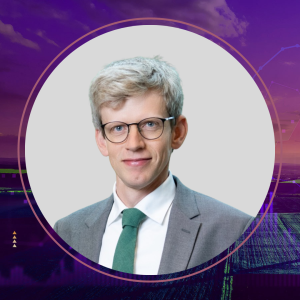
Ladislav Tolmáči
Executive Director, Corporate Finance Solutions, Erste Group Bank AG
Ladislav is an Executive Director with Corporate Finance Solutions Team of Erste Group in Vienna, covering renewable energy and infrastructure financings across the whole CEE region. With over a decade of experience at Erste, Ladislav has accompanied the major expansion of renewables in the CEE region.
Recently, after having structured and closed pioneering transactions under the emerging schemes in CEE, that are based on corporate Power Purchase Agreements and Contracts for Differences, the outlook is promising. However, in order to advance even further towards the very much desired electricity costs relief, energy independence and climate impact in CEE a necessity to create various bankable financing solutions for clean energy area is required. Looking forward to address these on the financing panel of CEEC 2023.
Before his career at Erste, Ladislav worked for Dexia Bank after completing his studies first at the Comenius University in Bratislava and later having studied Renewable Energy at the Vienna University of Technology.
Erste as a financial institution rooted in CEE is dedicated to promote clean energy investments across CEE and in Slovak Rep. is present through Slovenská Sporiteľňa, a.s.
Tuesday (November 21)
CHAIR
Alexander Duleba, CEEC Honorary Director, Slovak Foreign Policy Association

Alexander Duleba
CEEC Honorary Director, Slovak Foreign Policy Association
Alexander Duleba is Senior Fellow at the Research Centre of the Slovak Foreign Policy Association (RC SFPA) and the Honorary Director of the Central European Energy Conference. In 2000–2019 he served as the RC SFPA director. Since 1995 he has been working for RC SFPA as the head of the Eastern Europe Research Programme. In 1993–1995 he was an analyst with the Slovak Institute for International Studies at the Slovak foreign ministry. In 2010 he became a lecturer at the Institute of Political Science at Prešov University. He was awarded a PhD in political science from the Slovak Academy of Sciences in 1998, made reader at Comenius University in Bratislava in 2009, and awarded a professorship from Masaryk University in Brno in 2019.
Keynote
Mustafa-Masi Nayyem, Head of the State Agency for Restoration and Infrastructure Development of Ukraine (online)

Mustafa-Masi Nayyem
Head of the State Agency for Restoration and Infrastructure Development of Ukraine (online)
Mustafa-Masi Nayyem is a former Deputy Minister of Infrastructure of Ukraine and Deputy General Director at the State Concern "Ukroboronprom". He also serves as a People's Deputy of Ukraine of the VIII convocation.
From 2005 till 2014, Mustafa was a a special correspondent, editor and media manager of leading Ukrainian publishers and an award winning journalist and Lecturer and author of courses at the Kyiv School of Economics. Currently, he is leading the State Agency for the Restoration and Development of Infrastructure of Ukraine.
Speakers
Marcus Lippold, Team Leader for Energy, Environment, Climate & Green Dea
Svyatoslav Pavlyuk, Executive Director, Association Energy efficient cities of Ukraine
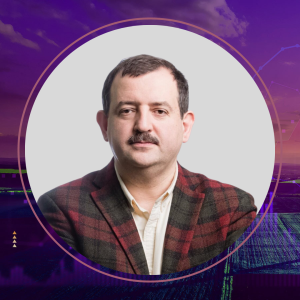
Svyatoslav Pavlyuk
Executive Director, Association Energy efficient cities of Ukraine
Svyatoslav Pavlyuk works as an Executive Director of EECU - Association of Energy Efficient Cities of Ukraine, which aims to improve the capacity of municipalities to plan and implement energy transition and energy efficiency programs in their efforts to modernize the municipal infrastructure and reach carbon neutrality.
Svyatoslav has extensive experience in promoting the reform agenda on the local and national levels and providing advisory to Governmental structures in a number of spheres including energy efficiency, good governance, public administration reform, and integration with the EU.
As a Team Leader for the Covenant of Mayors East project in 2012-2015 Planned and supervised activities with over 180 involved municipalities in 11 counties of Eastern partnership and Central Asia region at the time. As of 2023, EECU supports over 300 Ukrainian municipalities in their Covenant of Mayors obligations.
As a Deputy Team leader and expert for EIB’s Ukrainian Municipal Infrastructure Program, he was responsible for the coordination of activities of the Programme Management Support Unit, and the start of 400 mln. Euro UMIP Programme (loan funding for municipal projects in district heating, energy efficiency in public buildings, water supply/wastewater and solid waste management, street lighting).
Since 2018, he has been leading the introduction of the European Energy Award in Ukraine.
Diana Polónyi, Director, Communication and International Relations, Eximbanka SR

Diana Polónyi
Director, Communication and International Relations, Eximbanka SR
Diana Polonyi serves as the Communication and International Relations Director at EXIMBANKA Slovakia. As the Founder of Mojguru.sk, she has pioneered a platform for online learning over the past nine years, offering a versatile range of courses. She was also a Chief Executive Officer at WAKIVAKY, with prior experience including Senior Account Manager at STARMEDIA Co., Communication & Corporate Affairs Lead for the Slovak Alliance for Innovation Economy, and Marketing Manager at ALEF Distribution SK. Her academic achievements include a Ph.D. in Marketing Communication from the University of Saint Cyril and Method.
CHAIR
Nolan Theisen, Senior Researcher, Slovak Foreign Policy Association

Nolan Theisen
Senior Researcher, Slovak Foreign Policy Association
Nolan Theisen is Senior Researcher at the Slovak Foreign Policy Association with nearly ten years of experience in Central and Eastern Europe energy and climate policy issues beginning as a research associate at the Budapest-based Regional Centre for Energy Policy Research (REKK). He holds a master’s degree in international economics from the University of California, San Diego Global Policy and Strategy program. His current areas of focus center on the clean mobility transition and development of Pannonian geothermal energy. Mr. Theisen is also Project Lead with the Slovak Electric Vehicle Association (SEVA).
9:00 – 9:30 Country update: Slovakia, Hungary and Czechia
SPEAKERS
Milan Jankura, Board of Directors Chairman, PW Energy
Antonin Tym, Project Manager, Czech Geological Survey / Geothermal Research Infrastructure Manger
Gábor Molnar, Geothermal Engineer, Mannvit
9:30 – 10:00 Outlook for EU funding and investment
SPEAKERS
Sanjeev Kumar, Head of Policy, European Geothermal Energy Council (EGEC)

Sanjeev Kumar
Head of Policy, European Geothermal Energy Council (EGEC)
Sanjeev is the Head of Policy at the European Geothermal Energy Council. He is the founder of Change Partnership - a think tank focusing on the solving of politics of climate change. Previously, he was advisor to Chris Davies, Chair of the PECH Committee in the European Parliament, Director of energy at Burson Cohn & Wolfe (formerly Burson Marsteller), Senior Associate at E3G, ETS coordinator at the WWF European Office and Business Affairs Manager at the Energy Institute in the UK. He read history at Queen Mary, University of London
Runar Jonsson, Managing Director Central Europe, Arctic Green Energy
Oto Salas, Director General, Slovgeoterm
10:00-10:15 Creating more opportunities for universities and students
SPEAKER
Péter Bencs, Associate Professor, Director of Institute of Energy Engineering and Chemical Machinery, Department of Fluid and Heat Engineering, University of Miskolc
Trucks and buses make up 2% of the EU fleet and account for nearly a third of Europe’s road transport GHG emissions. Heavy duty transportation is an especially significant challenge in the V4: Poland is home to the most HDV registrations in the EU with a mass of over 3.5 tons and in 2020 Polish road freight carriers recorded 28% of all the cargo moved across the EU with an average age of 12 years, a consistent feature shared throughout the entire CEE region. In early 2023 the European Commission released its revised emissions standards for heavy duty vehicles as part of the Greening Transport Package under the EU Green Deal. The updated EU alternative fuel infrastructure regulation (AFIR) obligations will already come into effect in 2025, which is why key infrastructure pilot projects need to be kick started now and better coordinated at the regional level to become true green corridors.
Keynote & CHAIR
Patrik Križanský, Director, Slovak Electric Vehicle Association and VP of the European Association for Electromobility (AVERE)

Patrik Križanský
Director, Slovak Electric Vehicle Association and VP of the European Association for Electromobility (AVERE)
Patrik has a long-term professional experience in projects focused on electric mobility, renewables and batteries. Patrik co-founded and currently leads the Slovak Electric Vehicle Association as its Director. He is also Vice President of AVERE – European Association for Electromobility, based in Brussels. Patrik is a certified trainer of EBA Battery and an alumnus of the Battery Expert program, both provided by EIT InnoEnergy.
He is also the managing partner of Enairgy, a consultancy in green technologies, and a managing partner of Espio, a young technology startup focused on the research and marketing of graphene-based sensors.
Patrik is an alumnus of the Executive MBA program at Carlson School of Management, the University of Minnesota, and WU Vienna University of Economics and Business, Austria. He also holds a Master's degree in International Affairs and Diplomacy from Matej Bel University, Slovakia.
Speakers
Peter Badík, Chief Executive Officer, Greenway Slovakia
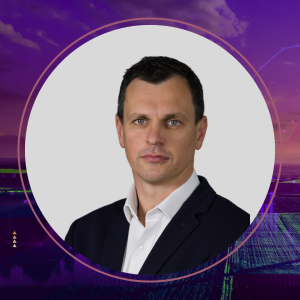
Peter Badík
Chief Executive Officer, Greenway Slovakia
Peter Badík is a co-founder and current CEO of GreenWay, the largest charging service provider in the CEE (Central and Eastern Europe) region, operating in Slovakia, Poland, and Croatia, with more than 2,000 public charging points, 50,000 customers, and 200 employees.
He is a board member of ChargeUp Europe, a European industry association for the charging sector based in Brussels, and a co-founder and former president of the Slovak Association for Electromobility (SEVA).
A trained banker and serial entrepreneur, he has been involved in electromobility since 2011.
Ibrahim Demir, Chief Executive Officer, Head of Trucks, Daimler Truck & Bus Slovakia

Ibrahim Demir
Chief Executive Officer, Head of Trucks, Daimler Truck & Bus Slovakia
Ibrahim Demir currently holds the position of Chief Executive Officer at Daimler Truck & Bus Slovakia s.r.o. in Bratislava, Slovakia since January 2023.
Prior to this, he served as the Head of Trucks at Mercedes-Benz Slovakia from July 2020 to January 2023 in the Metropolregion Bratislava.
His experience within Daimler includes roles such as Manager Trucks Sales East Europe at Daimler Truck AG from March 2018 to June 2020 in Stuttgart, Germany, and overseeing Sales Steering in Turkey, Romania, Hungary, and Slovakia for 9 years and 6 months at Daimler AG.
Ibrahim's career also encompasses significant periods in Retail Network Development and Dealer Network Development at Daimler, focusing on strategic projects, performance evaluation, and network restructuring measures across various markets.
His educational background includes studies in Betriebswirtschaft und Unternehmensführung at Hochschule Heilbronn and prior education at Kaufmännisches Berufskolleg Sigmaringen.
Henning Häder, Public Policy Manager, Sustainable Transport EU, Amazon
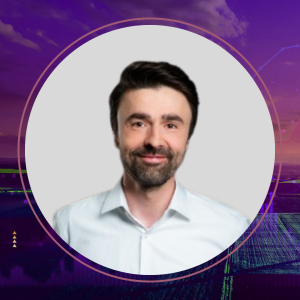
Henning Häder
Public Policy Manager, Sustainable Transport EU, Amazon
Henning joined Amazon as the public policy lead on sustainable transport EU in January 2022. In his work, he focuses on helping Amazon decarbonize its transport network in order to meet the ambitious Climate Pledge goal of net-zero emissions by 2040. Prior to his role at Amazon Henning was policy director at Eurelectric, the European association for the power sector, working on the cost-effective decarbonization of the power generation in the EU. He holds a Master in Intelligence & International Security from King’s College London.
Tahir Kapetanovic, Vice-Chair of the Board of ENTSO-E, Head of System Operation and Vice President International, Austrian Power Grid AG

Tahir Kapetanovic
Vice-Chair of the Board of ENTSO-E, Head of System Operation and Vice President International, Austrian Power Grid AG
Tahir Kapetanovic is head of system operation and vice president international at Austrian Power Grid, the TSO of Austria. In ENTSO-E he is vice-chair of the Board, where earlier he chaired System Operations Committee, managed development of operational network codes and regional TSOs’ coordination. In TSC and System Operation Region Central he is member of management boards and previously chaired TSC Operational Board.
Tahir has over 35 years of experience in electricity transmission, energy markets regulation, banking sector, electrical equipment industries and academic research. He is certified operator of Austrian transmission system and licensed trader on EPEX Spot and EEX power exchanges.
He holds PhD, MSc and Dipl.-Ing. in electrical engineering and power systems from TU Wien and University of Zagreb and Executive MBA from University of Minnesota and Vienna University of Economics and Business.
Aleksander Rajch, Board Member, PSPA
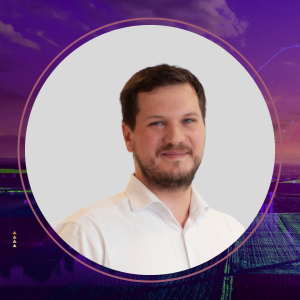
Aleksander Rajch
Board Member, PSPA
Aleksander is a co-founder and board member at PSPA, where he leads the work on lithium-ion batteries, HDV electrification, EU regulation, international affairs and addressing hydrogen technologies outside of road transport. Since 2022, he has also been the program director for the New Mobility Congress, the largest and most significant sustainable transport tradeshow in the CEE. Having a 15-year track record in advocacy and public affairs, Aleksander has confirmed experience in fostering clean energy and innovative technologies. A lawyer by education, he is an author of numerous publications on new mobility and a speaker at many sustainable transport events and conferences.
CHAIR
Dóra Csernus, Director for Climate and Environmental Policies, Equilibrium Institute

Dóra Csernus
Director for Climate and Environmental Policies, Equilibrium Institute
Dóra Csernus is Director for Climate and Environment at Equilibrium Institute. Her portfolio covers all topics linked to sustainability and energy.
As an expert in environmental issues, she has worked for the Hungarian Ministry of Environment and Water, the Office of the Parliamentary Commissioner for Future Generations and the Ministry of Public Administration and Justice, representing the Hungarian position in different EU, UN, and OECD fora. She later worked as Director for International Policy Development at Klímapolitika Research and Consultancy Ltd, and as an independent expert in climate and environmental issues. Her main focus is on climate policy, air-quality control and water policy. She has been working with Equilibrium Institute for 3 years, first, as an external expert then as a member of the core team. She has a degree in economics from the University of Szeged and a degree in geopolitics from the Paris 8 University - Institut Français de Géopolitique. She is a great science-fiction fan.
Speakers
Ján Čiampor, Director of Energy Efficiency and Savings Department, Ministry of Industry and Trade of the Czech Republic

Ján Čiampor
Director of Energy Efficiency and Savings Department, Ministry of Industry and Trade of the Czech Republic
Ján has been working in the field of energy efficiency since 2016, when he started working at the Ministry of Industry and Trade as a policy officer. Between 2019 and 2021, he also worked in the European Commission in the Directorate General for Energy, where he focused on energy efficiency in the heating and cooling sector. Since 2022, he has been working as Director of the Energy Efficiency and Savings Department and is dedicated to drafting national energy efficiency and buildings legislation, strategies and financial schemes to promote energy savings.
Éva Gerőházi, Senior Researcher, Metropolitan Research Institute

Éva Gerőházi
Senior Researcher, Metropolitan Research Institute
Éva Gerőházi joined MRI in 1997 and since then she has gained rich experience in diverse fields of urban development. She started her career as the project manager of the residential building renovation programme of USAID. Since then she continued on dealing with the energy efficient renovation of residential buildings from time to time broadening the scope to Central and Eastern Europe and focusing on also the issues of energy poverty.
She elaborated urban development plans for various Hungarian municipalities and also dealt with the special problems of deprived neighbourhoods. Eva has participated in and coordinated different research programmes financed by the European Union in the fields of renovation of big housing estates, fostering the community self-organised construction and renovation of the housing stock, green infrastructure governance in European cities, inequality among urban young population and energy efficient renovation of privately owned multi-family buildings.
Miroslav Lopour, Head of Energy strategy team, Deloitte Czech Republic
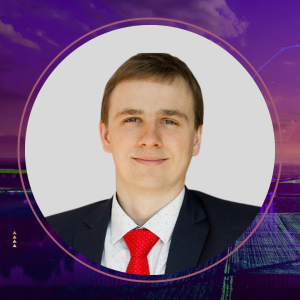
Miroslav Lopour
Head of Energy strategy team, Deloitte Czech Republic
Miroslav Lopour is a senior manager of strategic projects in the energy team of the consulting services department for over eight years, specializing particularly in the strategy and finances of energy companies. His projects have encompassed a wide range of customer-oriented issues. In the past, he has been involved in the reorganization of utilities, corporate strategy and trading, as well as CSR strategy. In the field of energy efficiency, he has long been focusing on the overall system of the Czech Republic, the activities of ESCO companies, and the analysis and design of measures to enhance energy efficiency. Miroslav studied international trade and finance at the University of Economics in Prague. He also pursued business studies at Stockholm University.
CHAIR
Szymon Kardaś, Senior Policy Fellow, European Council on Foreign Relations
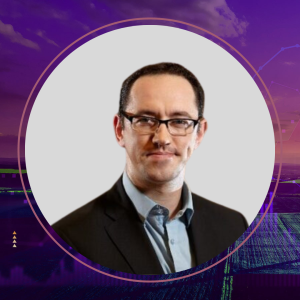
Szymon Kardaś
Senior Policy Fellow, European Council on Foreign Relations
Szymon Kardaś is a senior policy fellow on energy within the European Power programme, based in ECFR's Warsaw Office. Between 2012 and 2022, he was a senior policy fellow at the Centre for Eastern Studies. He is an assistant professor at the Faculty of Political Science and International Studies at the University of Warsaw.
Speakers
András Deák, Research fellow, Institute of World Economics of the Hungarian Academy of Sciences

András Deák
Research fellow, Institute of World Economics of the Hungarian Academy of Sciences
András Deák is Senior Research Fellow at the Institute for Strategic and Defense Studies, UPS, Budapest. He received his Diploma (MA) and his Doctorate (Ph.D.) in International Relations, in 1997 and 2003, respectively, both from the University of Economic Sciences, Hungary. His research fields cover economic processes in the Post Soviet space, integration into the world economy and energy policy in particular. He has authored 70 publications and participates around 20-30 international academic and policy conferences, workshops. He edited 6 study books primarily on current Russian economic trends and its integration into world economy. András Deák also holds courses in different Hungarian Universities on Contemporary Russian History and Post Soviet Regional Studies. His activities include foreign and energy policy analysis, political and corporate consultancy on Hungarian and some civil activities in energy conservation
Robert Jambrich, Head of International relations, EU affairs and Environment, Slovenské elektrárne
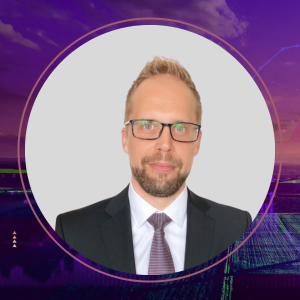
Robert Jambrich
Head of International relations, EU affairs and Environment, Slovenské elektrárne
Robert Jambrich studied a Corporate Finance in 2005 at Faculty of Business Management at the University of Economics in Bratislava. Previously, he worked at the Antimonopoly Office of the Slovak Republic, where he was responsible for assessing the abuse of dominant position in various areas, including the power sector.
Since 2009 he works for the company Slovenské elektrárne, a.s., where he holds position as a Head of International Relations, European affairs and Environment. Among his responsibilities are analysis and implementation of Slovak as well as European regulatory and legislative framework in the area of environment, coordination of institutional relations with European and national stakeholders and analysis of financing opportunities for development projects of the company from European funding schemes.
Robert is active in various working groups in the power sector related organisations such as Eurelectric, Nuclear Europe or Business Europe.
Tomáš Kovalovský, Chairman of the Board, Czech Nuclear Association

Tomáš Kovalovský
Chairman of the Board, Czech Nuclear Association
Tomáš Kovalovský is a Chairman of the board of Czech Nuclear Association and expert and consultant in the field of energy.
Currently, he is supporting Czech nuclear program for NPP Dukovany 5,6 and Temelín 3,4 including industry and suppliers.
Previously, Mr Kovalovský was engaged in the field of strategy and development, renewable energy, radioactive waste management, deep geological repository, configuration management, as well as in new nuclear build preparation of Temelín 3,4 and Dukovany 5,6 localities and development and construction Ledvice 660 MWe power plant. He also served as served as a WANO inspector.
Anastasiya Shapochkina, President, Eastern Circles (online)

Anastasiya Shapochkina
President, Eastern Circles (online)
Anastasiya Shapochkina is founder and president of Eastern Circles, a French geoeconomics think tank working on energy and defense in the post-Soviet region. Prior to that, she has 12 years of experience in consulting and energy industry, where she worked on companies, technologies and market analysis in the renewable energy, utilities, nuclear energy, and e-mobility. She led development of international cross-industry partnership research projects on these subjects and represented business in European industrial and research associations. Anastasiya is a lecturer on geopolitics in Sciences Po Paris since 2012, focusing on the role of business in the EU-Russia relations. Author of articles on geopolitics of Ukraine and Russia, she has regular TV and radio appearances. Anastasiya graduated from Georgetown University School of Foreign Service, German and European Studies Program.

Veronika Oravcová
CEEC Director, Slovak Foreign Policy Association
Veronika Oravcová is a Research Fellow at the Slovak Foreign Policy Association and a Research Assistant at the Department of Political Science at Comenius University in Bratislava. Her research interests are centred on energy transition and energy security in Central and Eastern Europe, she is a co-editor of From Economic to Energy Transition. Three Decades of Transitions in Central and Eastern Europe (Palgrave: London, 2021), several chapters on energy transition, and several papers on Slovak energy policy.

